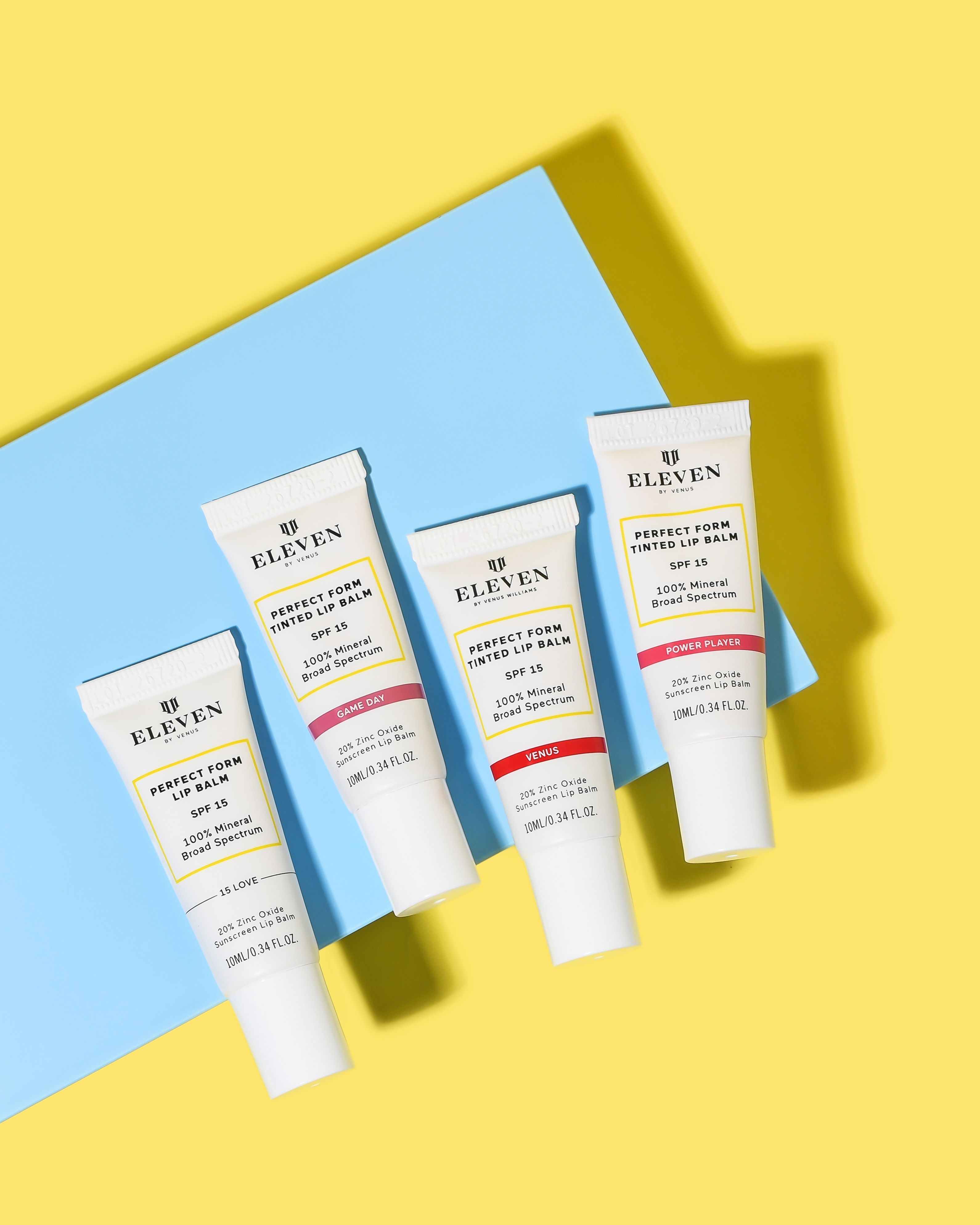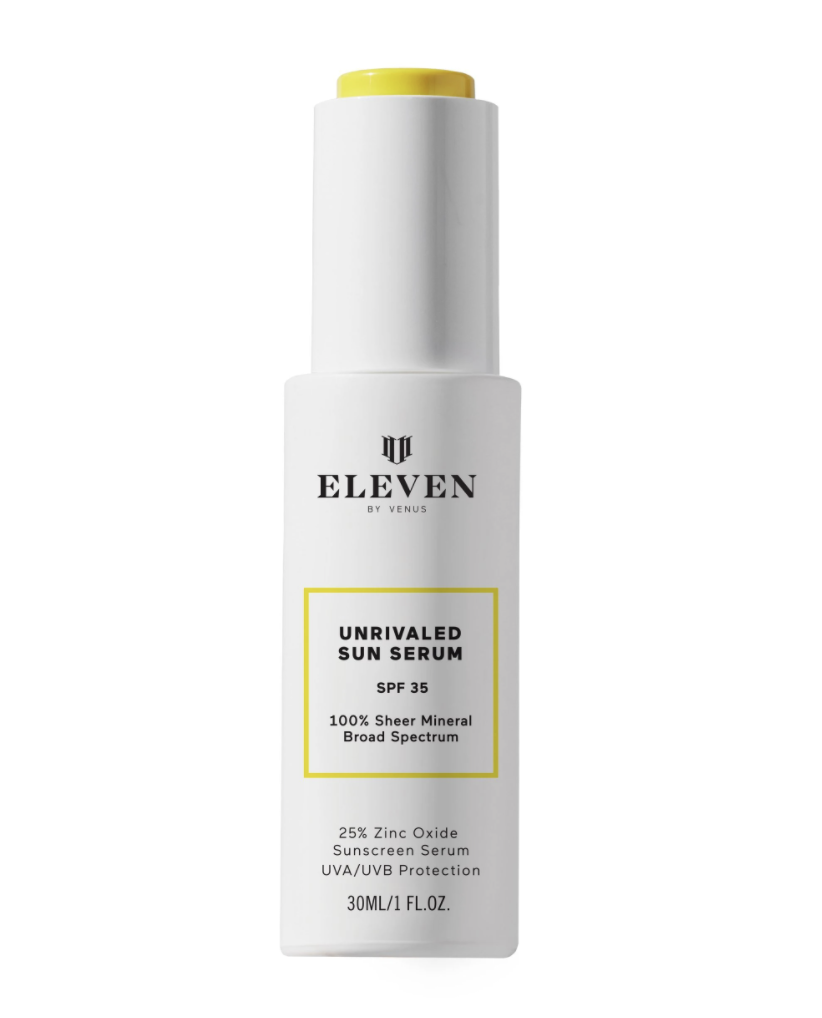Venus Williams isn’t just a renowned athlete and role model—she’s also a clean beauty entrepreneur and trailblazer. To say that she is a wellness advocate is an understatement; the professional tennis player practices what she preaches. “For me, wellness includes everything: What you put in your body, what you put on your body, your mental health, your sleep quality, your lifestyle as a whole, and so much more,” Williams tells BAZAAR.com. “It’s a multi-faceted concept and everyone’s path to a healthy, happy life is different.”
Williams’s wellness journey began in earnest ten years ago when she was diagnosed with an autoimmune disease called Sjogren’s Syndrome. Its management called for the athlete to make lifestyle adjustments, such as adopting a largely plant-based diet. With a career that demands vitality and peak physical performance, she ultimately noticed changes that went beyond improvements to her condition. “I also saw benefits in my energy levels, my skin complexion, and my mood,” she says. Her passion for wellness has since expanded to incorporate other holistic lifestyle components as well—from the merits of prioritizing sleep (“I’m a big proponent of getting eight hours,” she says), to launching her own clean beauty brand: the eponymously-named SPF line EleVen by Venus Williams.
Now, Williams’s beauty brand is expanding their line of non-toxic sunscreens to provide protection for the lips, in partnership with the clean beauty destination, Credo.
The Importance of Inclusive SPF
“Growing up, I thought I was invincible from the sun due to my dark skin. It wasn’t until I was around 30 when I realized how important sunscreen and sun protection is—for everywhere on the skin, and for all skin types,” explains Williams. This is what inspired the CEO to delve into sun care with EleVen by Venus Williams at Credo, itself an innovation for making mineral SPF (which has traditionally been notoriously difficult to formulate without leaving behind an ashy cast) appropriate for all skin tones, including deep- and more melanated shades.
It was difficult for me to find a sunscreen that really did it all.
Williams’s personal struggle finding sun protection that suited her physically active lifestyle and skin tone helped her relate to the general need for an inclusive mineral SPF. “It was difficult for me to find a sunscreen that really did it all. I wanted to find a product that could keep up with my active lifestyle, blended with my skin tone, used clean ingredients, and was lightweight enough to wear under makeup,” she says. “With our sunscreens, we wanted to ensure that all those boxes were checked off for others that may have had a similar consumer experience to mine.”
Dr. Corey Hartman, a board-certified dermatologist and founder of Skin Wellness Dermatology in Birmingham, AL, also sees this demand for inclusive SPF formulas among his patients. He notes that hyperpigmentation—dark spots on the skin that are exacerbated by UV-exposure—is one of the leading reasons that his darker-skinned patients come to him for treatment.
“I am partial to mineral sunscreens because they are chemical-free, ocean- and environmentally-friendly, incapable of causing allergies, and are more effective at reflecting the sun’s rays…The tricky part is finding good physical sunscreens that are mineral-based, but don’t leave ashy or iridescent casts on darker skin tones,” adds Dr. Hartman. “Breakthrough products that provide physical SPF protection for darker skin types without leaving a white or iridescent cast are innovations indeed.”
What is Clean SPF?
By creating a mineral SPF that blended seamlessly on all skin tones, EleVen by Venus Willliams and Credo achieved this important milestone in clean beauty inclusivity. To some, making “non-toxic” sunscreen accessible to all skin-tones is a matter of public health, with the absence of a clean SPF that would work for all skin tones only served to further an industry-wide, intersectional status quo in which a research-verified health gap persisted.
Koestline explains that chemical sunscreens—while invisible in application and easy to apply—can be known irritants, allergens, and can stay in your bloodstream for several days after use. Whereas the Food and Drug Administration (FDA) has already deemed mineral sunscreens ingredients like zinc oxide and titanium dioxide safe, the chemical counterparts are currently under a second review after multiple studies found the blood-absorption level to be higher than anticipated. “While both of these studies make a great start, additional data are needed for each of these 12 active sunscreen ingredients in order to fully understand their absorption into the body as well as the long-term effects of absorption,” reads an FDA release from January of last year. “Without further testing, the FDA does not know what levels of absorption can be considered safe.”
This industry ambiguity is exactly why retailer Credo has come to be known as a leader in the clean beauty space, advocating for tougher regulations and ingredient standards. Stocking only brands that adhere to The Credo Clean Standard—which excludes over 2,700 beauty ingredients and types—partnering with Williams’s brand was a natural fit.
Don’t Forget Your Lips
“We often overlook our lips when it comes to sun care, but they need protection just like any skin on our body,” says Williams. “The lip balm gives me an extra pop of color, while also keeping me protected.”
We often overlook our lips when it comes to sun care, but they need protection just like any skin on our body
Dr. Hartman notes that SPF protection for the lips is vitally important because they are constantly exposed to ultraviolet light and cannot tan. “Lips are more susceptible to photo-aging because the skin is thinner and virtually always exposed to ultraviolet light,” adds Dr. Hartman. “Sun-damaged lips are dry, shriveled, full of lines and wrinkles, have pigmented spots, and begin to retract.” Accordingly, the dermatologist suggests that sun protection for the lips should be applied before lipstick or lip tint, and reapplied six to eight times throughout the day.
The EleVen By Venus Willians Perfect Form Lip Balm SPF 15 comes in four sheer shades: the untinted 15 Love; a pop of red via Venus; a light coral called Power Player; and a soft berry pink named Game Day. The vegan formula provides broad spectrum UV-protection thanks to 20% zinc oxide, while conditioning and hydrating the lips with bayberry fruit wax (a plant-based alternative to beeswax), and hydrating shea butter.
Williams says that her preferred shade varies by day, but the balms are her new staple beauty product. “The color I pick depends on my mood,” she adds. If you’re on the fence between choosing a sheer or tinted shade, one interesting incentive for tinted sunscreen is that some studies show they actually impart more comprehensive protection. “In addition to increasing the capability of the mineral sunscreen to stay on your skin longer, a tint also helps improve sunscreen spreadability,” notes Krupa. “Several studies have also shown better protection from blue and visible light when using tinted sunscreens, which means slower photo-aging.”
The Future of Clean Beauty and Wellness
Something that stands out about Williams is her genuine conviction for the value of wellness. Her entrepreneurial endeavors reflect this, making her insights into clean living and wellness accessible to the rest of us. Her passion for a clean diet is reflected in the creation of her plant-based protein company, Happy Viking; her appreciation of a full night’s sleep is enhanced through the CBD- and Magnesium-infused product line, Asutra, of which she is part-owner and Chief Brand Officer; and the availability of non-toxic personal care and beauty products for all shoppers has been made possible through the EleVen by Venus Williams’s partnership with Credo.
“I’ve always loved skincare and valued finding beauty products that use clean ingredients, are environmentally conscious, and offer real protection,” notes Williams. “From the sunscreens to the lip balms, it was important for me to not only create products made from high quality ingredients, but to also ensure they actually worked.”
Williams adds that she is optimistic about the future of clean beauty, as brands increasingly tune-in to a growing public desire for ingredient transparency and regulated clean beauty standards. “You wouldn’t put something in your body without knowing what it is, so why would you put a product on your skin—the body’s biggest organ—without understanding what is in it?”
Source: Read Full Article

